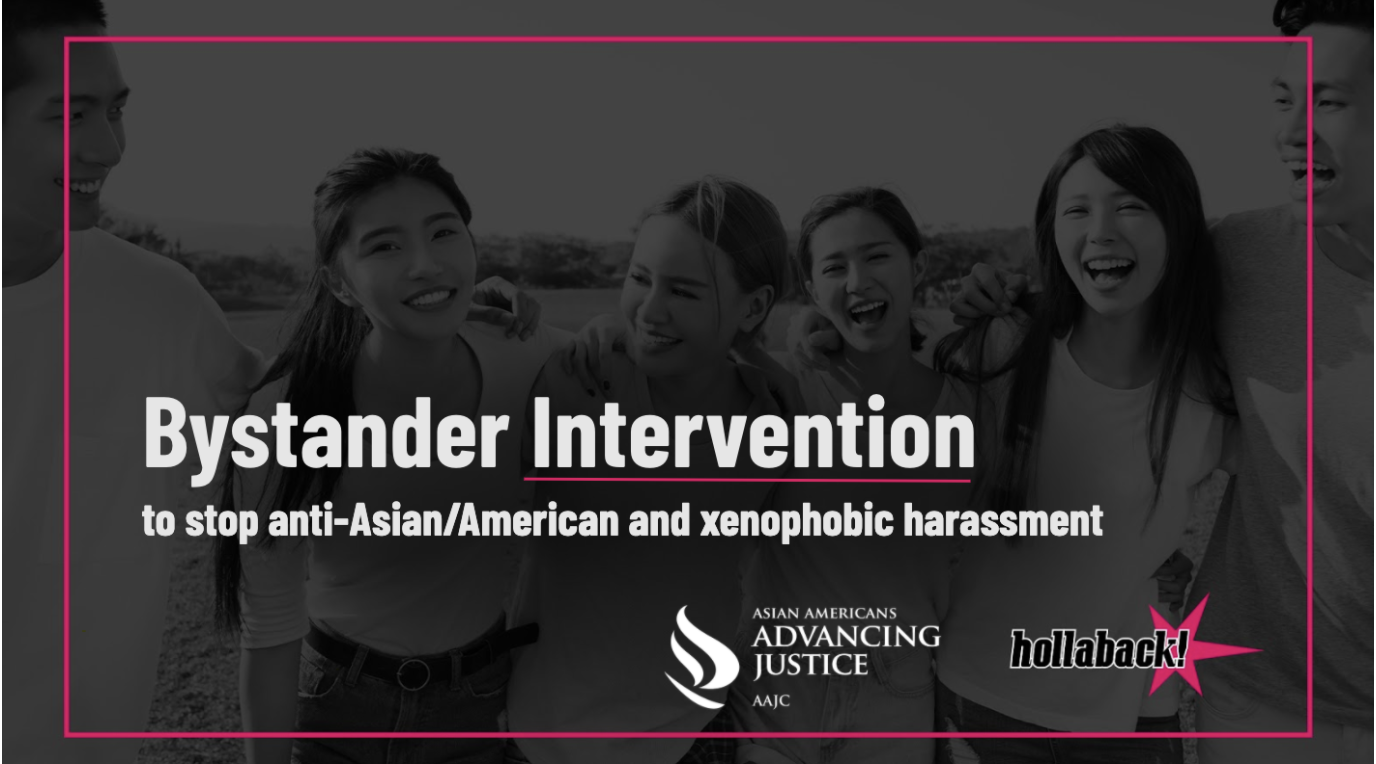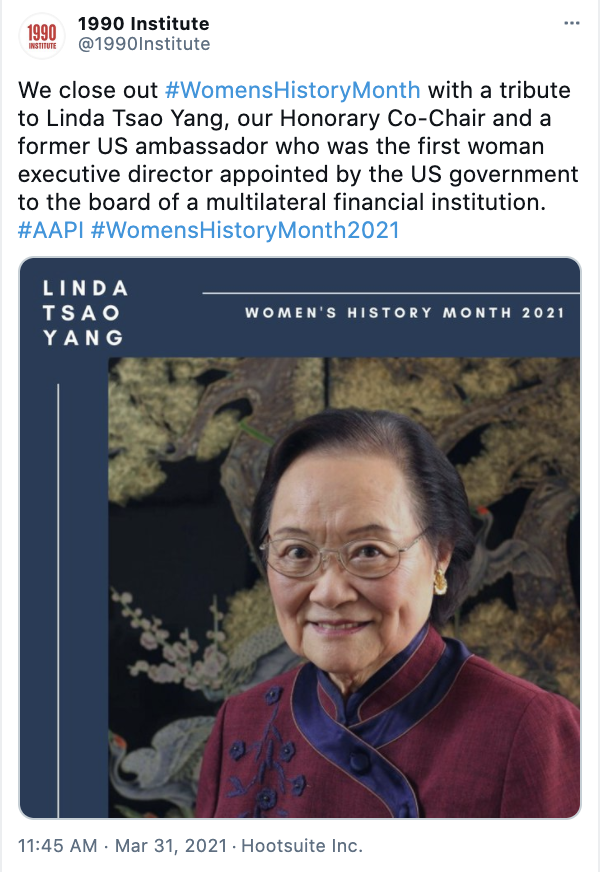| | | Dear Friends, It has been another long two weeks for Asian America, full of worry, outrage, vigils, panels, and difficult conversations as more Asian American elders were attacked without provocation and without assistance. Here is the latest news, analysis, and reflections in our fifth 1990 Institute Newsletter. Thanks for your continued financial support and please encourage your friends to subscribe. |
| |  | |
|
| Preparing and Protecting our Loved Ones from Racist Violence By Frances Kai-Hwa Wang My college-aged daughter remarked recently that because of the work that I do, she has always been aware of anti-Asian-American violence, “Probably a little too aware.” When she was in elementary school, we watched “Who Killed Vincent Chin” and “Vincent Who?” together at the library. When she was in middle school, we practiced what to physically do if a big bully cornered her in the lunchroom. While teaching her how to drive last summer, we talked about what to do if the police pull her over. And my children have heard me speak about Asian American history and activism at countless talks, conferences, and rallies. So she was surprised by how surprised her college friends were by the recent violence in Atlanta. As Asian America struggles with the fear, anger, worry, and pain of our Asian American elders and sisters being targeted for violence, I am similarly surprised by how many parents are “grappling” with whether or not to tell their children about racism. You don’t have to scare them, but we teach our children to hold hands while crossing the street as soon as they can walk. They have fire drills, earthquake drills, tornado drills, and active shooter drills in elementary school. In middle school health, girls learn how to protect their drink from being drugged years before they are legally able to drink. Even if you did not know about anti-Asian-American violence before, a year into this pandemic, it is certainly clear now. So what can we do? How can we protect ourselves and our loved ones? -
Speak up and Speak out: Report (and tell others to report) hate incidents to law enforcement and StopAAPIHate, and learn what is needed to prosecute hate crimes in court; -
Talk to your children and elders about racism and give them tools and strategies to stay safe, be it martial arts lessons, big walking sticks, or grocery delivery; -
Attend bystander intervention training at Hollaback! to learn how to safely witness or intervene; -
Support Asian American restaurants, businesses, artists, and community organizations -
Learn Asian American history, especially the history of Asian American resistance and the power of interracial solidarity The term “Asian American” was created in 1968, coming out of the Black Power and Third World Liberation Front student movements. Every time we call ourselves Asian American, we are making a statement that we are American and we belong. |
| |
|
| | | Atlanta Spa Shootings: What Korean-Language Media Told Us That the Mainstream Media Didn’t | Rolling Stones English-language and Korean-language media have been covering the mass shootings in Atlanta very differently. “There was more weight given to remarks of eyewitnesses and the victims’ families in Korean media than in English media in the early stages,” said Jeong Park of The Sacramento Bee who was one of the first to share English summaries of Korean-language news coverage on social media. Opinion: Anti-Asian violence is often inseparable from misogyny | Washington Post Jenn Fang, founder of the Asian American feminist blog, Reappropriate, writes that attempts to determine if the Atlanta shooter was motivated by racism or sexism are misguided. Asian women are often stereotyped simultaneously as submissive and dangerous, and the intersection of racism and sexism has long been used to rationalize violence against Asian American women. Advocates praise new White House actions to counter rising anti-Asian violence | Politico Asian American advocates and legislators lauded the White House for several new actions to address attacks and harassment of Asian American and Pacific Islander (AAPI) communities. This came after Senators Duckworth and Hirono criticized the Biden administration’s meager appointments of Asian Americans to senior positions. Both parties look to recruit Asian American candidates as violence against group increases | The Hill Both parties are increasing their efforts to recruit more AAPIs to run for public office as anti-Asian American violence rises. U.S. Rep. Andy Kim (D-NJ) launched In Our Hands PAC to recruit and support AAPI candidates and other candidates of color. The GOP is capitalizing on last year’s success when multiple Asian American Republican women won competitive House races in California. Essay: Representation heals: How watching K-dramas lifted the weight of white supremacy and freed my tongue | Salon After binge-watching Korean dramas through the pandemic, Korean Australian American actress Alicia Hannah reveled in finding representation onscreen and finally learned her parents' language. “It was all always there, and I can't believe how much had lived in me unspoken... Now I Facetime with [Mum/Omma] in Korean and we dream of going to Seoul together when the pandemic is over.” Doing business in China is difficult. A clash over human rights is making it harder | CNN Business Many global brands, including Nike and Adidas, faced enormous pressure last summer from activists to ensure that their supply chains are free of ties to Xinjiang. Now, China is using the statements they released around that time against them. |
| Spotlight - We have an updated trailer for our innovative new video series, "Voices, Visibility, and Vision: Lifting the Fog Around China and Asian Americans." This series examines the perceptions of Asian Americans and China and how China affects all Americans. Coming this spring are videos about misperceptions of Asian Americans and understanding the lives of Chinese citizens today. Stay tuned!
- Did you know that many early U.S. policies against Chinese American's integration were not only harmful to Asians and other people of color, but also to America's own development and competitiveness as a country? In a panel discussion called “Chinese Americans: The History You Were Never Told” presented by Stand With Asians (the advocacy group that organized the March 26 virtual day of action in support of Asian Americans and a 1990 Institute partner), you'll discover a number of key moments in American history that played a role in shaping how the country views Asians in America. Moderated by 1990 Institute Board member Brian Wong, founder of RADII Media, in conversation with Stanford University Professor Gordon H. Chang (a member of the 1990 Institute's Advisory Council), Committee of 100 co-founder Henry Tang, and UC Davis School of Law Professor Gabriel “Jack” Chin.
- During these troubled times, the 1990 Institute and Board Chair, Dan Chao, composed this poem about Asian Americans and our place in America. He would like to share it with all of you.
Ode to Asian Americans Strong We are Asians hear us roar
We have rights and won’t be ignored
We are strong and we belong
In America
Our diversity makes us strong
Our unity is our bond
We will fight for our rights
In America
See us for who we are
Listen as we speak
We contribute to everyday life
We’ve fought and we’ve faced strife
Different we may seem
But we all want the American dream
Our loyalties are here
There is no need to fear
Over 20 million strong
Trying to get along
We too have needs
As we work hard to succeed
We help America to be strong
We’ve earned the right to belong
We are Asians
We are America
|
| Dim Sum - A Little Bit of Heart |
| |  | | | |
|
|
|
| | 1990 Institute
P.O. Box 383 | San Francisco, California 94104
contact@1990institute.org www.1990institute.org |
| | | |
|
| |
|
|